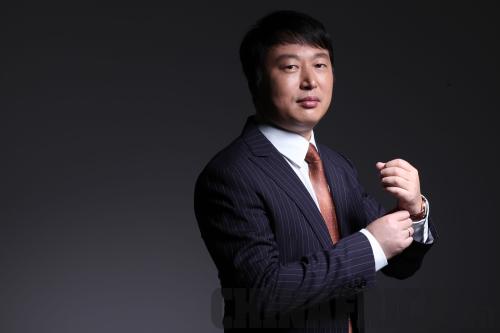| 
Cheng zhigang
Cheng Zhigang, Secretary General of China-Africa Industrial Cooperation and Development Forum (CAIF), has been elected chairman of the China WTO Africa Commission of the China Society for WTO Studies. Cheng, who traveled to many African countries and dialogued with more than 40 African envoys over the past six years, is highly regarded by many African leaders as a "messenger of Sino-African friendship." Recently he shared with ChinAfrica reporter Yu Nan his views on the benefits and challenges of Sino-African trade and cooperation and his role in furthering it in his new role.
ChinAfrica: How will you promote the development of the commission?
Cheng Zhigang: Since its accession to the World Trade Organization (WTO) in 2001, China has fully implemented its WTO commitments. It has taken full advantage of the multilateral trading system to promote reforms and development. There has been major progress in the national economy and foreign trade cooperation. China is now the second largest economy and the world's biggest commodity trader. It has attracted a steady flow of foreign investment every year while its foreign direct investment has grown rapidly. It shows that the Chinese Government made the right decision by joining the WTO. China will adapt to the new economic globalization, taking a more active strategy of opening up. It will improve an open economic structure that is mutually beneficial, diversified yet balanced, safe and highly efficient.
The China Society for WTO Studies, comprising government officials and experts on WTO affairs, is engaged in solving economic and trading problems related to the WTO. I shoulder a heavy responsibility as the head of the China WTO Africa Commission, for Africa is a vibrant continent and Sino-African friendship has a long history. The commission mainly studies trade and investment in Africa within the WTO framework. The aim is to increase bilateral trade cooperation and exchanges. It will organize an Africa visit by experts this year to interact with the business sectors. By the end of the year, we will hold the 2014 China WTO African Trade Seminar to look into the problems Sino-African trade faces and establish a regular bilateral strategic dialogue mechanism. We also plan to publish an annual African "Beige Book" on trade and investment by Sino-African experts, which will provide Chinese enterprises with a robust development track.
What about your work as CAIF secretary general during the past six years?
We held three biennial sessions of CAIF and the value of the total trade volume exceeded $10 billion. CAIF also helped over 100 Chinese companies invest in Africa. In the process, I have traveled to most African countries and dialogued with more than 40 African envoys. I was regarded as a "messenger of Sino-African friendship" and published a book, Walking Into Africa for New Business Opportunities.
China has been Africa's largest trading partner for five consecutive years. In which areas do you see the two strengthening cooperation?
China will expand two-way investment and financing cooperation in the next three to five years. We will continue taking strong measures to support Africa improve infrastructure, agriculture, processing and manufacturing. We will also support the development of small and medium-sized enterprises. Meanwhile, collaboration on energy, transport, logistics and finance has boomed.
What kind of legal services does the Africa Legal Affairs Center provide for Chinese enterprises investing in Africa?
The center under CAIF's aegis is the first professional legal service agency in China to offer legal support to Chinese enterprises investing in Africa. It has a wide range of experts with in-depth knowledge about Africa. Since its establishment, the center has offered legal services to more than 100 enterprises. It has also compiled the Legal Guide to Investment for more than 20 African countries, playing an increasingly important role in dealing with China-Africa trade disputes. Some legal experts and African diplomats will be invited to organize regular salons to brief on the investment environment in Africa and help Chinese enterprises avoid investment risks and better understand local policies and laws.
Some say "China's instant noodles culture in Africa has greatly affected the Coca-Cola culture" in order to highlight China's growing influence on the continent. What's your view on this?
China attaches importance to supporting African countries to improve their infrastructure, helping them build hospitals, schools, roads and bridges. In the past two decades, African consumers have also benefited from Chinese goods with lower prices but high quality.
Bilateral trade experienced double-digit growth for three consecutive years. Its value is likely to exceed $300 billion in 2015, which will put the EU and the United States under great pressure. [But] Coca-Cola doesn't have to worry as each product has its own market development path. So it is normal to see Chinese noodles enjoying great popularity in Africa today.
What do you think about the Western media allegation that China is grabbing land in Africa while ignoring China's contribution to Africa's economic development?
It is normal that Europe and the United States are jealous of China-Africa relations developing smoothly. As you sow, so you reap. China's engagement in Africa has nothing to do with neocolonialism and there is no basis for such exaggerated coverage. China has always maintained a pattern of mutually beneficial and win-win cooperation. The bilateral relations have entered a new development phase. China's development policy, management skills and new technology can provide useful lessons for African countries' development. China should also help African countries forge an industrial development strategy.
What do you think of the role of cultural exchanges in China-Africa relations?
Cultural integration can help both sides deepen their understanding of each other and enhance mutual respect. China has now established more than a dozen Confucius institutes in Africa to promote bilateral cultural exchanges.
|